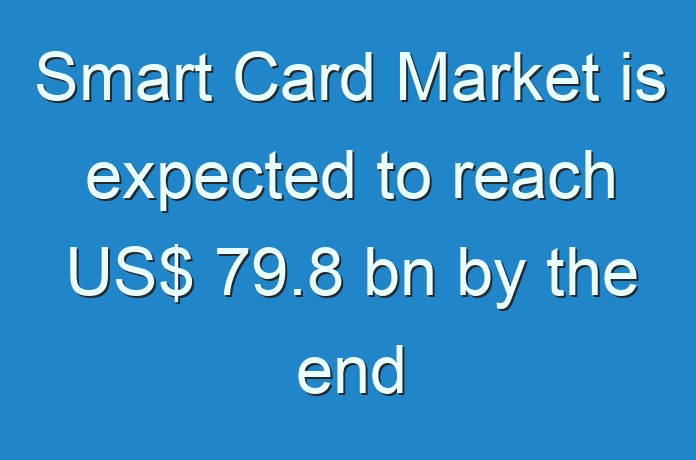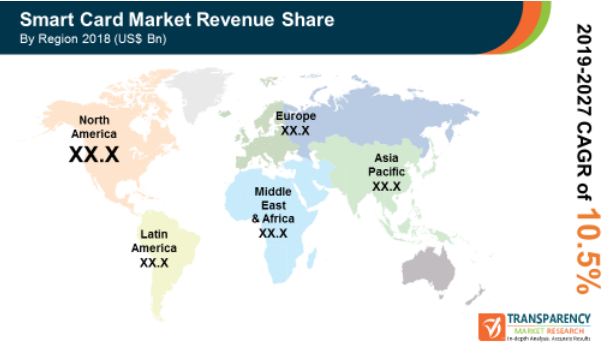
The global smart card market stood at US$ 32.5 bn in 2018. Due to increasing technological changes, the market is expected to reach US$ 79.8 bn by the end of 2027. Due to consistent growth and increasing use of smart cards, this market is estimated to rise at a CAGR of 10.5% during the forecast tenure between 2019 and 2027.
Key players driving the global smart card market are NXP Semiconductors NV, Gemalto NV, Infineon Technologies AG, and Giesecke & Devrient (G&D) GmbH. These companies hold hold dominant share in the global smart card market. Some of the new entrants such as Watchdata and Eastcompeace Technology Co. Ltd. are making significant efforts to give a tough competition to the existing players in the market. New players are providing solutions based on consumer preference.
Global transaction value via digital payment method was above US$ 3 trillion in 2019. Moreover, age group between 15–34 also has a robust keenness for new technologies that has changed digital solutions from being a accessibility to an important part of how people transact. This is one of the key trend of the growth in smart card sales.

Growing Demand Of Contactless Smart Cards Will Drive The Market Growth
In terms of type, the global market for smart card can be segmented into contactless cards, contact cards, hybrid smart cards, and dual interface. The demand for contact smart cards is expected to keep rising as customers become more inclined towards an improved digital landscape. Based on component type, the global market for smart card can be segmented into microcontroller-based smart cards and card-based smart cards. The demand for microcontroller-based smart cards is increasing on account of the need to track transactions.
Increasing Demand for Cashless Payment
Rising demand for cashless transaction in the developing economies in order to control and manage average spending is driving the product demand. It is a convenient option for companies to make their daily payment through smart card. According to a study. Canada, Sweden, U.K., France and U.S. are the top five cashless economies in the world.





